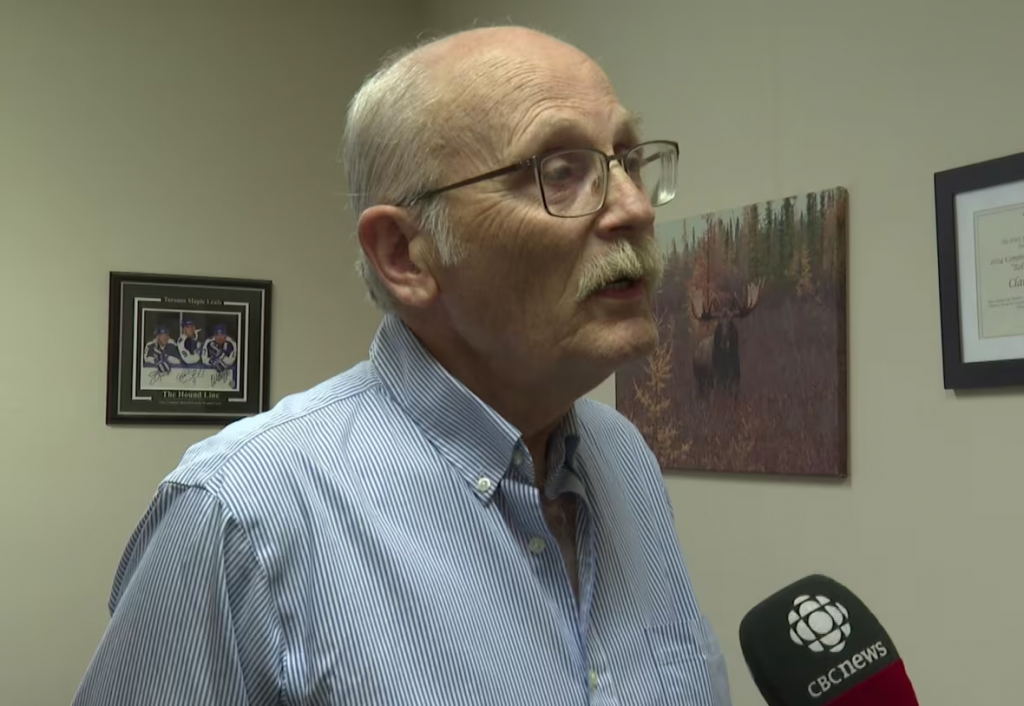Northerners decry potential cuts to housing subsidies for some federal workers

Decision expected Tuesday following meeting between Treasury Board and unions
Fewer staff to operate services, more southern-based teleworking employees, and lower federal transfer payments — those are among the consequences of a potential change to a federal subsidy, according to some northerners.
The Treasury Board of Canada Secretariat (TBS) is planning to change its “shelter cost differential” program to reduce part of its housing subsidy for federal employees in certain isolated posts, while adding subsidies for others.
The change would add rental subsidies for employees in 17 communities across the three territories, while reducing housing payments by $6,000 to $8,500 per year for people who own their homes in Yellowknife, Whitehorse, Iqaluit, Norman Wells and Inuvik, N.W.T.
The shelter cost differential is part of an isolated living allowance used to attract skilled labour in isolated locations. Exact amounts depend on location, whether the employee has dependents, and the accommodations themselves. TBS did not respond to questions on how much the subsidy covers.
Josée-Anne Spirito, the executive vice-president for Public Service Alliance of Canada (PSAC) North, says the change would punish employees who show commitment to staying in the North and hurt communities that already struggle to recruit and retain workers.
“The North has its challenges and for people who are here and want to set roots in the North, this is essential in being able to to build a stable and financially healthy home for their families,” Spirito said.
“For a family unit to hear that all of a sudden they will be losing out on nearly $10,000 a year, it has a big impact.”
She says she’s pleased the additional communities can receive benefits but that doesn’t offset the hundreds of people affected by the losing the benefit in Whitehorse, Iqaluit, Yellowknife, Norman Wells and Inuvik.
TBS did not respond to questions about why it’s planning to make the shelter cost differential change, why the reduction would affect homeowners but not renters or those provided government housing, or how its plan was communicated to those affected.
Spirito expects a meeting on Tuesday between the government and the unions to bring a final decision on whether the change is implemented. She said the meeting is a “consultative process” and if they can’t reach a resolution, PSAC and other bargaining agents will pursue other avenues to ensure homeowners continue to receive the subsidy. Spirito listed filing grievances and writing letters to MPs as examples.

If the changes do go through, the Government of Canada plans to reduce the shelter cost differential by 50 per cent on Dec. 1 and the subsidy for homeowners would end entirely by September 2024.
“So you don’t get hit all at once, but you ultimately lose it all,” said a northern federal employee who owns a home. CBC is protecting the employee’s identity since they are not authorized to speak publicly.
With rising mortgage rates and general increases to the cost of living, the employee said the news made them consider moving south and they know of colleagues having similar conversations.
They said they’ve also heard of people offered employment, who were previously willing to move north, but then refused letters of offer as a result of the subsidy change.
The employee pointed to Prime Minister Justin Trudeau’s Yellowknife visit earlier this month and how he commented on high housing costs in the North in announcing new units for the capital.
“And at the same time, his Treasury Board of Canada is reducing the shelter cost differential for their employees, basically telling us that things in the North aren’t as expensive as they used to be compared to southern Canada and that we don’t require it anymore,” they said.
“Quite frankly there’s a lot of people in the North that are federal government workers that can be on telework agreements that there’s no reason why they can’t go live in Edmonton or Ottawa or Toronto and do their job remotely.”
The employee said they were informed about the change in an email in early August that they called “convoluted,” where they said information was “hidden,” and “very difficult to find.”
‘Only going to compound the problem’
Inuvik Mayor Clarence Wood said he learned of the potential change through media reports and is writing a letter to N.W.T. MP Michael McLeod to express his opposition.
Wood said his town relies on federal employees to operate a range of services including its two nearby national parks.
“We’re having a hard time now attracting employees from outside the town because of the lack of housing. So that’s only going to compound the problem,” he said.

Norman Wells Mayor Frank Pope said the change would impact some families but is unlikely to have a major impact on the town.
“Our cost of living is absurd already,” Pope said in an email to CBC News.
Meantime, Fort Chipewyan is among the communities that are being added to the shelter cost differential. Federal employees in that community will receive a subsidy on rentals if the potential changes go through.
Allan Adam, Chief of the Athabasca Chipewyan First Nation said he was just learning about the potential subsidy change for the first time when CBC called.
“If it does go through it’ll help out quite a bit,” he said. But Adam said that if federal employees leave the five communities where homeowners are losing their shelter cost payments that would affect his community too and exacerbate the recruitment problem northern communities already face.
An online petition opposing the changes has about 330 signatures as of Friday afternoon. It says there are approximately 1,400 federal employees in the North.
Related stories from around the North:
Canada: N.W.T. projected to spend $100M on fighting wildfires — 5 times more than budgeted, CBC News
Norway: Smoke from Canadian wildfires forecast to reach Norway, The Associated Press
Russia: New NOAA report finds vast Siberian wildfires linked to Arctic warming, The Associated Press
Sweden: High risk of wildfires in many parts of Sweden, including North, Radio Sweden
United States: Wildfires in Anchorage? Climate change sparks disaster fears, The Associated Press



